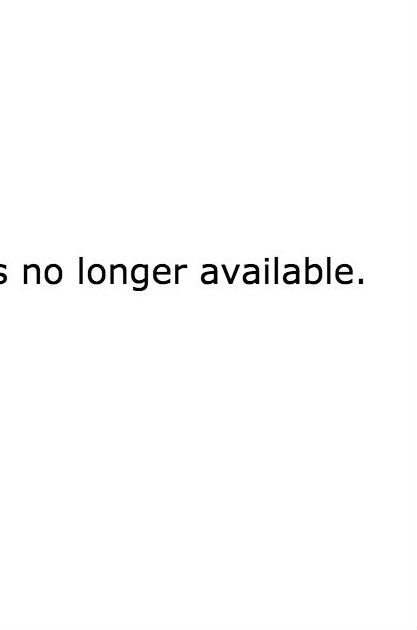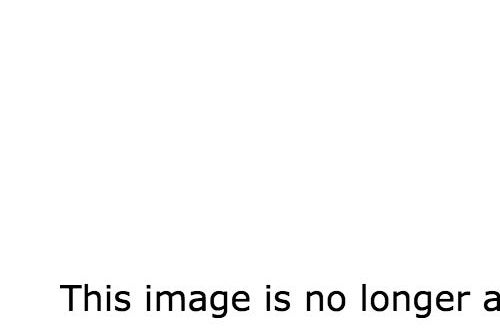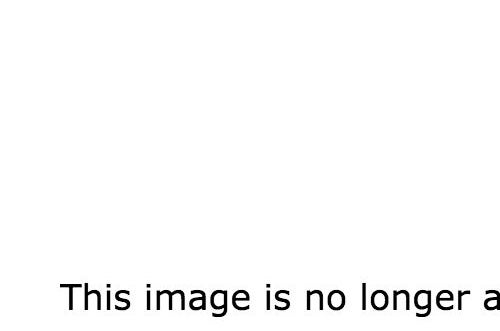


Conan O'Brien, who wrote and produced for The Simpsons before becoming the host of Late Night, The Tonight Show, and now Conan, is in London to promote appearing regularly on British TV screens for the first time. There's several things you notice when you meet him. One: his hair. He is the only man in the world who can pull off that side-flick quiff without looking like an idiot. Two: his height. O'Brien is known for being very tall, but when you meet him the only thing you can think of is, "Wow, Conan really is quite tall." And third? He doesn't always act like the hyperactive child you see on screen. He's charming, friendly, confident, and keen, but also quite mellow and chilled. You think, "This can't be right, why isn't he LOUDER? He has to act LOUDER," so then you start to come across like a hyperactive child. That's why our interview starts like this:
"HELLO!" [I wave to O'Brien by mistake, even though I have been in the same room as him for the last five minutes.]
Conan O'Brien: I like this. [Starts waving back at me]. Hello. How are you?
I just do that normally to anyone.
COB: Do you do that really?
Yeah, yeah, really. [I am still waving at this point, then panic and repeat to myself, "Just start the fucking interview FFS."] Do you think late-night shows can take off worldwide in their own right, or do you think that they are a purely US thing that stems from Johnny Carson being such an institution?
COB: I think it is a United States thing very much and has been, but it is changing all the time. The world is getting closer and closer together – there's a lot of shows that I watch now. I watch Sherlock and I got really into Alan Partridge a number of years ago, and I'm constantly watching shows from other countries and loving them. It starts to become irrelevant where they're from, you just like them. I don't pat myself on the back and say, "I'm going to watch Sherlock to find out what is going on across the pond!"
I shoot these "remotes", remote segments where I go out and have these adventures, and they just seem to work. I've had people from all over the world who see them on the internet say "I love that", "I love this".
Being an ass with celebrities is the universal language. There's hope that these shows can translate.


If you did remotes in London I imagine you would need a lot of confidence because people would just punch you in the face. How do you work with people who are unsuspecting and don't realise that they are part of the whole thing?
COB: You know, I think my "inner spirit" is pretty nice. My comedy is not to make someone else look stupid – I actually like to be the victim of the joke, so my favourite kind of remote is to get into the situation where I am not good at something, I'm inept, and that then plays out in front of people who are staring at me. So the joke isn't on them. I think if I did comedy where the joke was on them, which I am not so comfortable with, I would get beaten to death very quickly.
I think doing remotes in London would actually be an interesting experience. I've done things like this. I did some remotes in Ireland and had really good success.
When you visited the Guinness brewery in Dublin?
COB: Yeah, I visited the Guinness brewery, but years before that I went to Ireland looking for my ancestors and I mocked up pictures of people from the 1890s – women, men, boys, babies that all had my face put in them, so it was like a woman in a wedding veil but with my face. I would show those to people on the street, and they would say, "What can you tell us about your ancestors?", and I would say, "Well, I don't know much. The last name is O'Brien and they were prone to drink. Can you help me out?"
There was a whole lot of silliness in there, and it worked out great. I think there is a way to crack it, but you have to be aware that you are in a different culture and you have to adjust. I would love to do a remote where I am trying to examine pub culture here in London, and if it ends with me after 15 beers not really making any sense, that's a good remote. I'd watch that.


When I told colleagues that I would be interviewing you, a lot of them mentioned Simpsons episodes such as "Marge Vs. the Monorail". It's amazing that with people of our age it is the one thing we are all talking about. The lines – we remember them all.
COB: It has been a gift to me. I remember where I was when I had the idea for the monorail episode – I was driving on Pico Boulevard in Los Angeles and I saw a billboard that just said "MONORAIL". I think someone was proposing it for public transportation, and I drove by and saw it and started to think about The Music Man [a 1962 musical in which a fraudster swindles a town by pretending to be a travelling band instructor].
Monorail was such a thing that people would get excited about in the 1950s. "Monorail is gonna change…" It was this goofy vision of the future that monorail would solve everything, so I thought that Homer would be the kind of guy who would be like, "MONORAIL", and obviously the story just started to unfold from there, the idea of a guy turning up and selling the idea of a monorail to this tiny town and it just goes in a circle. So, what's nice is that I wrote that a long time ago. You might not have been born when I wrote that.
I think I was about 4 or 5…
COB: Yeah, so what's interesting is this gift. So much of what we do in comedy is ephemeral, it's here and then it's gone. You do something, people laugh and then it is over. That's something that I did, a couple of my Simpsons episodes, also "Homer Goes to College" and "Bart Gets a Girlfriend"… Here it is, 22 years later, and people still come up and want to talk with me about "Marge Vs. the Monorail", and they can quote from it and I can't. I've forgotten it all.
And then what's really interesting, just because you brought it up, is two days before I left to come to England my phone rang and it was The Simpsons. And they said that they were doing a live show at the Hollywood Bowl, and all the actors are going to do the voices, and, "Would you be a special guest star and sing 'The Monorail Song' with the Los Angeles Gay Men's Choir?" And the answer there is "YES", so I am going to do that I think in September.


You switched to hosting Late Night in '93. Do you look back and wish you stayed at The Simpsons longer?
COB: God, no.
Really?
COB: No, no. I mean, I loved working on The Simpsons, but what I always wanted to do was… When I was on The Simpsons, imagine a room like this, only really crappy. On The Simpsons it was a room about this size [the size of a small garage], really rowdy furniture, all of us sitting around staring at each other from 9 o'clock in the morning until 9 o'clock at night, trying to think of ideas, and it was hard, hard work. I'm very hyperactive, so the writers used to use me to be their court jester. They would get bored and would say "Conan!" and I would get up and do all of this stuff and dance around, so as a writer I was always very energetic and a performer.
And they used to talk about me. John Swartzwelder, one of the writers, who has written I think some of the best episodes, along with George Meyer, he used to say, "You need to have your own show." They knew then that this guy needed to get out of that room. So I loved my time there, but I have had an amazing adventure in television having my own show and it is much more active.
I get to write things and edit things, but I also get to meet all of these amazing people – play the guitar with Bruce Springsteen, get in the bathtub with Ricky Gervais, get my beard shaved on the episode with Will Ferrell, it goes on and on and on. Hundreds of thousands of amazing experiences. I got to go to Finland and become a national hero in Finland, for no reason. There's just so much – my life in the last 21 years has been one big piece of performance art, idiocy after idiocy, and it's sort of beautiful. I cherish my time at The Simpsons but I also know that if I'd stayed there I probably would have jumped out of the window, because I was too hyperactive. Too hyperactive to sit still.


Conan was a whole new show from scratch. Was that daunting to take on?
COB: Initially, yeah, but I actually think it was a good exercise because if you've been a host of something for a while you start to become an institution, which is a dangerous thing. We did a lot of sketches on the old show which would be very easy to just keep doing for 20 years. And when we started the new show we consciously decided, "Let's let everything go and start to think of new things and really use the internet more." So if I had not given up those old things I never would have reviewed video games, and that's become really popular now in the gaming world.
In terms of new features, you have been fantastic at reflecting at what people are talking about on the internet. How does it work? Do you rely on the writers?
COB: I got a lot more savvy 'cause I had to. I was very ignorant, I was like an Amish person. I mean, I drove a wooden buggy and I didn't use a computer that often. I had to change overnight and get more sophisticated. Now I just think more differently about what would be funny to tweet out, what would be a good picture, but also got more sophisticated in paying attention. I look at the internet a lot just to see what a short attention everybody has and how everyone communicates now. And so I did this thing with Dave Franco on Tinder when we went out. I love using these social networking phenomena and getting someone involved in it, like the Lyft car with Ice Cube and Kevin Hart… It's a new way to be funny.
I don't think that my sense of humour has changed. I've always been the same person and I react to the absurd in the same way, and I like being a fish out of water.


One thing that really stuck out from your final Tonight Show was when you said, "Please do not be cynical. I hate cynicism. For the record, it is my least favourite quality." Why did you feel the need to say that?
COB: It was very spontaneous, that was the thing. I didn't plan to say that, but I wanted to… I think that's a moment that a lot of people talk to me about because it is very hard to actually reach out on television and connect with people in a real way. People are so used to things being canned. And I've never been a slick performer. I have my idiosyncrasies, and I could list the "75 Things About Me That Don't Make Me A Normal Broadcaster" – I don't have a broadcaster's voice, I sometimes speak too quickly, I'm not a slick, smooth personality – but I think in that moment I was able to say something that I was feeling and it resonated well with a lot of people.
And it was a real moment, and my way of saying, "OK, this happened, but it's amazing that I got to do this at all, and it's amazing that I'm going to figure a way to still be able to do it." And now you and I are talking and I am in London and we're talking about the Simpsons monorail episode.
I don't want to get jaded and I don't want to get cynical, and I don't want to get like this is a business. This actually is exciting to me. And young people laughing at something I do, or liking something or connecting to do it in some way, is endlessly exciting to me, and that's why I try not to take that for granted.
BuzzFeed has been frequently mocked in O'Brien's feature BuzzFeed Is Running Out of Lists.
View this video on YouTube
We asked him to suggest another post.


Here is his suggestion.

Conan is on truTV in the UK at 11pm, Mondays–Thursdays.
Episodes will be shown 24 hours after they first appeared on the US cable network TBS.

